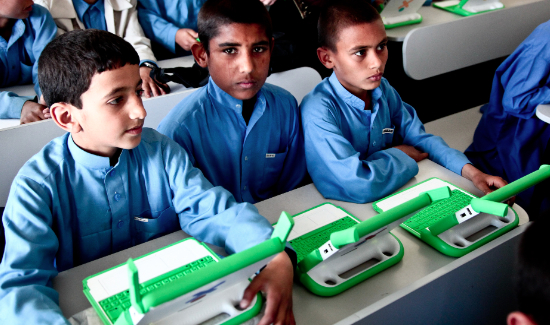
What is Educational Technology in LMICs?
Educational technology in LMICs is defined as “any technology—including hardware, software and digital content—designed or appropriated for any educational purpose” in Low- and Middle-Income Countries. EduTech is not one thing – it is many things.
- EduTech can be in audio, video, visual, multimedia, analogue, or digital formats.
- EduTech can be used as one-to-many, 1:1 technologies, peer-to-peer, or professionally produced lessons and user-generated digital content.
- EduTech can be a deliberately designed piece of educational software, such as an educational video platform
- EduTech can be technology designed for more general use but incorporated into the teaching and learning process, such as word processing software.
- Edutech can be at home, at an educational institution, in an after-school programme, in a library, or at an informal learning center.
- EduTech can be used by formal teachers, school directors, students, or by informal learning guides and life-long learners.
Benefits of Educational Technology in LMICs
Educational technologies can be used to improve access and enhance the quality of teaching and learning in settings where resources are limited. EdTech can help to overcome LMIC challenges by providing innovative solutions that enable access to quality education for all learners.
- EduTech in LMICs can take many different forms, including digital learning platforms, educational games, online courses, and mobile applications.
- EduTech in LMICs can also be used to support teachers in delivering effective instruction and managing classroom activities.
- EduTech in LMICs can increase access to education for learners who may be geographically isolated or marginalized. For example, digital learning platforms and online courses for learners in rural areas
- EduTech can also help to improve the quality of education in LMICs by providing teachers with tools and resources to enhance their teaching practices.
For example, digital platforms can provide teachers with access to training and instructional skills. Additionally, digital tools such as learning management systems and assessment platforms can help teachers to track student progress and identify areas where additional support may be needed.
EduTech has the potential to revolutionize education in LMICs by providing learners with access to high-quality educational content, personalized learning experiences, and real-time feedback, and supporting teachers in delivering effective instruction and managing classroom activities.










